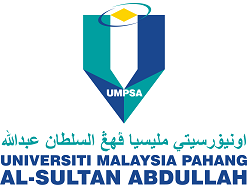
Indexed in:

A Reviewer's Obligation
Reviewing needs both time and a specialised skill set. Before accepting a peer review submission, you should wish to learn more about the peer-review process and how to perform a review.
Reviewers assess paper submissions to journals in accordance with the journal's standards, predefined parameters, and the content, completeness, and consistency of the study presented. They provide input on the document, make suggestions for improvement, and advise the editor on whether to approve, refuse, or request changes to the post. Although the final decision is often made by the journal's publisher, reviewers have a major impact on the result.
Reviewers
Peer evaluation and ethical considerations
Peer reviews play a critical role in maintaining the scholarly record's credibility. The peer-review process is largely dependent on the confidence and voluntary involvement of the scholarly community and demands that all parties involved act professionally and ethically. Peer reviewers are an integral and important part of the peer review process, but they may enter the position unprepared and unaware of their ethical responsibilities.
Journals should have open peer review policies, and reviewers should perform reviews ethically and responsibly. Clear contact between the journal and reviewers is critical to ensuring that reviews are consistent, honest, and timely.
The Process of Peer Review
After you apply your article to a journal, it will be evaluated by independent experts in the field. These reviewers, who are occasionally referred to as referees,' are tasked with evaluating the validity, relevance, and originality of your work, ensuring that each article you publish is as good as it can be.
Peer examination conducted in a double-blind fashion
Our journal employs a double-blind review procedure in which the reviewers are unaware that you are the author of the paper. Additionally, you have no idea who the reviewers are. The humanities and social sciences are especially receptive to double-blind study.
Many researchers favour double-blind review because they feel it provides a more objective assessment of their paper than a single-blind review does. It can help mitigate the risk of a paper being subjected to unintentional prejudice by reviewers who are aware of the author's seniority, gender, or nationality.
Even if you have anonymized your paper, reviewers can be able to deduce your identity, particularly if you work in a highly specialised sector. They may have heard you present similar ideas at a conference or recognise your writing style, for example.
Conducting an audit
The initial stages: Thoroughly read the manuscript, supplementary data files, and ancillary material (e.g., reviewer instructions, required ethics and policy statements), contacting the journal if something is unclear or lacking.
Confidence: Respect the peer-review process's confidentiality and abstain from using information obtained during the peer review process for your or another's benefit, or to disadvantage or discredit others. Without first seeking permission from the journal, do not include someone else in editing a manuscript (including early career researchers you are mentoring). Individuals who assisted with the review should be included so they can be associated with the manuscript in the journal's records and receive appropriate recognition for their efforts.
Bias and conflicting interests: It is critical to maintaining an unbiased position when considering the authors' nationality, religious or political beliefs, gender or other characteristics, the manuscript's origins, or commercial considerations. If you become aware of a conflicting interest that may preclude you from providing an objective and fair review, notify the journal and seek guidance. While you await a response, refrain from looking at the manuscript and any accompanying materials in case the request for review is rescinded. Similarly, notify the journal immediately if you discover that you lack the necessary expertise to assess the relevant aspects, so as not to delay the review process unnecessarily. If you suspect the author's identity (s) during a double-blind review, notify the journal immediately if this information raises any potential competing or conflicting interests.
Suspicion of ethical violations: Notify the journal if you become aware of any irregularities regarding research and publication ethics. For instance, you may have concerns about possible misconduct during the research process or during the writing and submission of the manuscript, or you may notice a significant similarity between the manuscript and another submission to another journal or a published article. If you have any concerns about these or any other ethical issues, please contact the editor directly rather than attempting to investigate on your own. It is acceptable to cooperate with the journal in confidence, but not to conduct additional research unless the journal requests additional information or advice.
Blind reviewing is a thankless task, but critical to an academic journal's standing and quality.
The reviewer should make correct and positive comments on the author's interpretation of the data, acknowledging its limitations. Are the data obtained and analysed using the required analytical methods, and are the findings correctly interpreted? Are the assumptions and/or implications drawn from the study findings accurately?
Additionally, the article should address the project's consequences and/or report on any findings or products that may be applicable to future research, development, or practice.
The reviewer's comments to the author should be positive, competent, and detailed enough to assist the author in revising the article for publication or resubmission to the journal. If reviewers have reason to believe there has been wrongdoing, they should contact the Chief Executive Editor in confidence. They can not communicate their questions to third parties unless the journal specifically authorises them to do so. The reviewer's suggestions to the author should be constructive, knowledgeable, and comprehensive enough to aid the author in revising the article for publication or resubmission to the journal. If reviewers have reason to suspect there has been misconduct, they should feel confident in contacting the Managing Editor. They should not disclose their inquiries to third parties unless expressly approved to do so by the publication.
